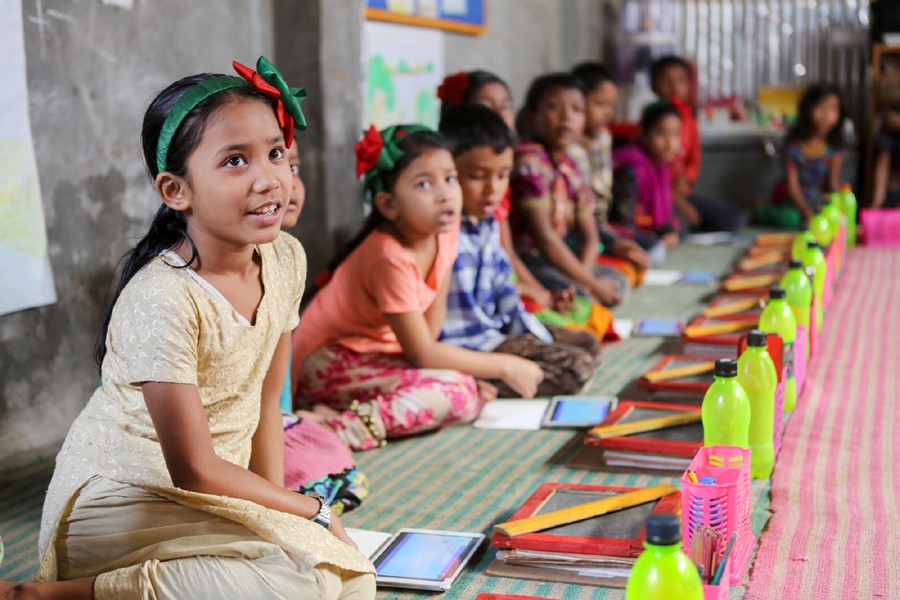
Published :
Updated :

Antor, a 10-year-old boy shares his dreams and struggle to study just like any other children.
Not long ago, it was just around two years back when Antor Ahmed felt jealous if anyone walked past him attiring school dress with books or backpack. He wished if he could study in school.
"I always felt jealous as I was unable to wear school dress, could not afford schooling and studies," said Antor, who used to work at a furniture shop in Rajshahi city.
Parents of the ill-fated boy, who lives at a Koitapukur slum in Rajshai city, did not allow their son to study as they thought pursuing education is worthless.
"My parents thought that it would be more effective and beneficial, if I go to work and earn some penny," he continued.
Antor, who is now in grade two, had his first chance to study at a school two years back, termed it as his dream coming true.
Not only Antor, 200 more underprivileged children are now getting the opportunity to study in a school.
'Alor Pothe Biddyaniketon' is providing education for the slum children in Rajshahi city.
Another class II student Abdul Halim, who used to collect wastes and scraps from dustbins and streets, now can write paragraphs in English.
"I want to study. I want to be a police officer in future," said Halim, who now spends most of the time of a day with study.
The school was founded in 2015 by a youth named Abu Zafar, who has come up with the idea of education for slum children.
A post-graduate Zafar has abandoned ordinary life of a better job, high salary, career or good opportunity to follow the call.
Soon after completing graduation, upon random request from some slum children, he shares his humble beginning of teaching.
As days past, his passion to teach the underprivileged children accelerated.
Zafar started preparing list of children at the slum and its adjacent areas.
Then bought old books and other academic materials from shops and began teaching the slum students under an open sky.
At the beginning, Zafar faced many difficulties. The slum dwellers did not like his initiative as they thought it would be economically harmful to them.
People underestimated studies over means of earning money through labour, said Zafar.
"Even, many parents did not allow their children to receive education, instead I was welcomed with misbehaviours," he lamented.
Being frustrated, Zafar gave up his initiative, came to Dhaka and joined a job. But the children started calling him to return to Rajshahi.
At one stage, Zafar accepted the request of children and went back to Rajshahi. But this time, he witnessed a change. All the slum dwellers started co-operating.
"Earlier, we had a wrong perception. But now we have understood that education is very important. Now, we send our children to the teacher (Zafar) and help him as per our capacity," said Khaleq Miah, a slum dweller and rickshaw puller by profession.
Later in 2015, Zafar with the help of slum dwellers took lease of 4 katha land and established a school in the region.
Currently, over 200 students are studying in the school and four youths are working there as teachers voluntarily without any remuneration.
Zafar, who runs a small business for earning livelihood, spends one-fourth of his earnings to run the school, reports BSS.
The school now gets books from local education office, said Zafar.
We would take this initiative to a more successful level if the government along with other affluent people come forward for the welfare of underprivileged children, adds Zafar.


 For all latest news, follow The Financial Express Google News channel.
For all latest news, follow The Financial Express Google News channel.